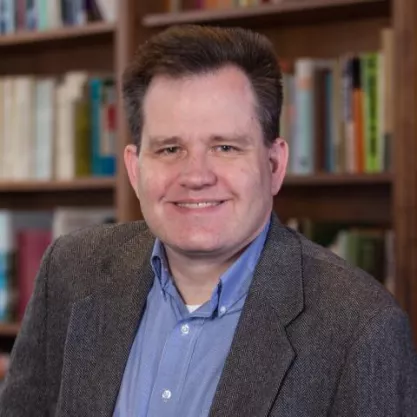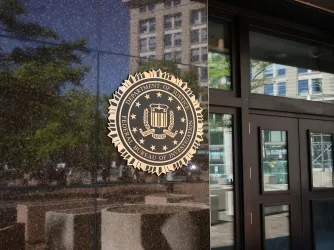Table of Contents
Floyd Abrams to direct two-year project focusing on the Press Clause — FAN 353

Floyd Abrams never seems to tire when it comes to almost anything having to do with the First Amendment, be it arguing cases, writing books or scholarly articles, giving speeches, blurbing books, speaking to the press, or even launching new projects. Here is a press release concerning one of his latest adventures:
The Floyd Abrams Institute for Freedom of Expression at Yale Law School is pleased to announce that it will receive a substantial grant from the Stanton Foundation to engage in a two-year project that will focus on the too often overlooked Press Clause of the First Amendment. Mr. Abrams will direct the project.
“For too long,” Mr. Abrams observed, “the provision in the First Amendment that freedom of speech ‘and of the press’ would be protected from government abridgment has led to justifiably broad protection of the former but far too little notice of the latter. It is time to begin to address that constitutional deficiency. Frank Stanton was a memorable champion of press freedom and it is thus especially meaningful that the grant that allows this project to proceed comes from the Stanton Foundation.”
The project will be designed to develop a constitutional strategy aimed at protecting freedom of the press by bringing together academics, lawyers, and journalists in workshops around the nation to discuss press freedom issues and to stimulate expanded scholarship and public engagement about the topic.
The Floyd Abrams Institute for Freedom of Expression at Yale Law School promotes freedom of speech, freedom of the press, access to information, and government transparency. The Institute’s activities are grounded on the belief that collaboration between the academy and the bar will enrich both scholarship and practice.
Contact:
Sandra Baron
Senior Fellow, Abrams Institute for Freedom of Expression
Visiting Clinical Lecturer in Law, Yale Law School
sandra.baron@yale.edu, 917-693-8069
Antisemitic hate speech on bold display in Los Angeles
This from a Twitter posting by Oren Segal (Oct. 23):
Related
- Ben Sisario, Vanessa Friedman, Jessica Testa & Ellen Barry, “Kanye West’s Offensive Behavior Makes Corporate Partners Squirm,” The New York Times (Oct. 24)
Update: Adidas said on Tuesday that it is cutting ties with Kanye West.
Kanye West had already been burning bridges in the music industry. He was disinvited from performing at the Grammy Awards last spring after erratic behavior. He withdrew from headlining this year’s Coachella festival just over a week before it began. His last album was released not on streaming services, but exclusively on a proprietary $200 speaker device.
This month Mr. West, who now goes by Ye, came under fire for making a series of antisemitic remarks and wearing a shirt with a slogan associated with white supremacists, putting some of his fashion-related businesses — which appear to be more lucrative these days than his musical ventures — in jeopardy.
- Dave Huber, “Student government VP resigns because First Amendment doesn’t ban ‘hate speech’,” The College Fix (Oct. 24)
‘60 Minutes’ segment — Lee Levine commenting on Fox News, Dominion Voting Systems and defamation
Lee Levine appears at 10:23 in the segment. “I think [the Dominion case] is much stronger than most defamation cases that I have seen. I might say it is the strongest,” said Lee Levine, a retired First Amendment lawyer who represented most media companies, including CBS and Fox.

Related
- “Trump Backs Florida Social Media Law at Supreme Court,” Bloomberg Law (Oct. 21)
Former President Donald Trump urged the US Supreme Court to let the government impose anti-discrimination requirements on social media companies, throwing his support behind a Florida law enacted after he was kicked off Twitter and Facebook.
Florida is asking the nation’s highest court to take up the case after a federal appeals court blocked part of the law as probably violating the First Amendment. The law is “an effort of the Florida legislature to ensure that, like any common carrier, platforms do not unfairly discriminate against users,” Trump argued in a 25-page filing urging the court to hear the Florida case.
See also: “On the offense: A new Trump defamation suit, yet another one threatened, and more!,” FAN 352 (Oct. 19)
Schwinn on Planned Parenthood surreptitious recordings ruling
- Steven D. Schwinn, “Ninth Circuit Says Planned Parenthood Can Collect Damages for Surreptitious Recordings,” Constitutional Law Prof. Blog (Oct. 25)
The Ninth Circuit last week ruled that Planned Parenthood could collect compensatory damages from an organization that used illegal means to infiltrate conferences and record Planned Parenthood staff without their consent. The ruling rebuffs the organization's argument that free speech protects against such damages, and reminds under the First Amendment, journalists are just like the rest of us.
The case, Planned Parenthood v. Newman, arose out of anti-choice activists' efforts to infiltrate conferences that Planned Parenthood attended or hosted and to surreptitiously record conversations with Planned Parenthood staff. Planned Parenthood sued for trespass, fraud, conspiracy, breach of contract, unlawful and fraudulent business practices, civil RICO, and various state and federal wiretapping laws. The district court ruled for Planned Parenthood and awarded statutory, compensatory, and punitive damages. The defendants appealed, arguing that compensatory damages violated the First Amendment.
The Ninth Circuit rejected the claim.
Election law symposium hosted by First Amendment Law Review
“Election Speech and the First Amendment Symposium”
The symposium was held virtually on Jan. 21 from 9:00 a.m. – 3:45 p.m.
View a recording of the symposium.
Keynote Address: FEC Commissioner, Shana M. Broussard, J.D.
Panel 1: Content Regulation and Election-Related Speech
Moderated by:
- Professor Mary-Rose Papandrea, J.D., UNC School of Law, Samuel Ashe Distinguished Professor of Constitutional Law.
Featuring:
- Professor Helen Norton, J.D., Colorado University School of Law, University Distinguished Professor and Rothgerber Chair in Constitutional Law.
- Professor Martin Redish, J.D., Northwestern University School of Law, Louis and Harriet Ancel Professor of Law and Public Policy.
- Professor Clay Calvert, J.D., Ph.D., University of Florida College of Journalism, Brechner Eminent Scholar in Mass Communication, and director, Marion B. Brechner First Amendment Project.
- Evan Ringel, D., Ph.D. candidate, UNC Hussman School of Journalism & Media, UNC Center for Information Technology and Public Life, research lead, Regulation of Election-Related Speech.
- Professor William Marshall, J.D. UNC School of Law, William Rand Kenan Jr. Distinguished Professor of Law.
Panel 2: Regulation of Money and Transparency in Election-Related Speech
Moderated by:
- Professor Eric Muller, J.D., UNC School of Law, Dan K. Moore Distinguished Professor of Law in Jurisprudence and Ethics.
Featuring:
- Professor Richard Hasen, UC Irvine School of Law, Chancellor’s Professor of Law and Political Science, Co-Director, Fair Elections and Free Speech Center.
- Professor Ciara Torres-Spelliscy, Stetson University, Professor of Law.
- Professor Leslie Kendrick, M.Phil, D.Phil, J.D., University of Virginia School of Law, White Burkett Miller Professor of Law and Public Affairs Director, Center for the First Amendment.
Panel 3: The Role of Online Platforms in Reducing Election Misinformation.
Moderated by:
- Professor David Ardia, S., J.D., L.L.M., UNC School of Law, Reef C. Ivey II Excellence Fund Term Professor of Law, co-director of the Center for Media Law and Policy.
Featuring:
- Professor Jasmine McNealy, D., Ph.D., University of Florida, associate professor, Department of Media Production, Management, and Technology, Associate, Director, Marion B. Brechner First Amendment Project.
- Professor Brenda Reddix-Smalls, J.D., L.L.M.
North Carolina Central University School of Law, professor of law. - Professor Robert Yablon, M.A., J.D., University of Wisconsin School of Law, associate professor, co-director, State Democracy Research Initiative.
- Professor Neema Guliani, J.D., legislative counsel, American Civil Liberties Union.
YouTube: Erica Goldberg on the price of free speech
Erica Goldberg, professor at the University of Dayton School of Law, joins Kristan McMahon, president of the Robert H. Jackson Center to discuss free speech today, the pressures the First Amendment doctrine is facing, and how we might address contemporary challenges. Professor Goldberg’s scholarship focuses on the intersection of tort law remedies and First Amendment rights.

Forthcoming book on Elijah Lovejoy and the fight for a free press
- Ken Ellingwood, “First to Fall: Elijah Lovejoy and the Fight for a Free Press in the Age of Slavery” (Pegasus Books, June 13, 2023)

A vividly told tale of a forgotten American hero — an impassioned newsman who fought for the right to speak out against slavery.
The history of the fight for free press has never been more vital in our own time, when journalists are targeted as “enemies of the people.” In this brilliant and rigorously researched history, award-winning journalist and author Ken Ellingwood animates the life and times of abolitionist newspaper editor Elijah Lovejoy.
First to Fall illuminates this flawed yet heroic figure who made the ultimate sacrifice while fighting for free press rights in a time when the First Amendment offered little protection for those who dared to critique America’s “peculiar institution.”
Culminating in Lovejoy’s dramatic clashes with the pro-slavery mob in Alton, Illinois — who were destroying printing press after printing press — First to Fall will bring Lovejoy, his supporters and his enemies to life during the raucous 1830s at the edge of slave country. It was a bloody period of innovation, conflict, violent politics, and painful soul-searching over pivotal issues of morality and justice.
In the tradition of books like The Arc of Justice, First to Fall elevates a compelling, socially urgent narrative that has never received the attention it deserves. The book will aim to do no less than rescue Lovejoy from the footnotes of history and restore him as a martyr whose death was not only a catalyst for widespread abolitionist action, but also inaugurated the movement toward the free press protections we cherish so dearly today.
New scholarly article by Keith Whittington on what professors can say in public
- Keith Whittington, “What Can Professors Say in Public? Extramural Speech and the First Amendment,” SSRN (Oct. 21)

Since the early twentieth century, academics have urged universities to recognize robust protections for the freedom of professors to speak in public on matters of political, social, and economic controversy, so-called “extramural speech.” The U.S. Supreme Court eventually recognized First Amendment protections for government employees, including state university professors, who express themselves about matters of public concern. The Court has indicated that the state should be especially solicitous of the speech of government employees in an academic context, but it has not adequately elaborated on the nature of those protections and how courts and government employers should assess the state’s interests relative to the extramural speech of professors employed at public universities.
This article describes the state of the existing principles and doctrine surrounding extramural speech and examines the factors that private and public universities can reasonably take into consideration when responding to such speech — and what rationales for suppressing such speech or sanctioning faculty for engaging in such speech are inappropriate. Controversies surrounding the public speech of university faculty have only become more common and more intense in recent years, and both public and private universities need to be more self-conscious about the risk of stifling the intellectual environment of universities and chilling unpopular speech when responding to such controversies. If First Amendment values are particularly weighty in the context of the marketplace of ideas on university campuses, then many of the rationales for disciplining government employees for controversial speech that may make sense in some governmental workplaces should be rejected if applied in the university context.
Institute for Free Speech’s Free Speech Index

The Institute for Free Speech is pleased to present the Free Speech Index: A first-of-its-kind analysis of laws restricting speech about government in all 50 states. This Index is the most comprehensive examination of state laws governing and regulating political engagement ever published.
The Free Speech Index rates each state on how well it supports the free speech and association rights of individuals and groups interested in speaking about candidates, issues of public policy, and their government.
To assess each state’s performance, we ranked the states in ten categories, each of which examines a different area of state law burdening speakers and groups.
Collins and Weiss on censorship and the ever-emerging technologies of communication
- Ronald Collins and Ryne Weiss, “Censoring the technologies of free expression,” FIRE (Oct. 19)

What if you could generate a photorealistic picture of anything you could imagine? It would have sounded like wizardry even 10 years ago, but it’s the reality of AI programs like DALL-E 2 and Stable Diffusion. Unsurprisingly, this powerful technology is raising fears about everything from political misinformation to defamatory images to political deepfakes.
Against this backdrop, a Washington Post article from the end of September bears dire warnings about the dangers of this new technology available to the public, along with calls for new legislation to curb the harmful use of such technology — that is to say, to censor it. That article contains no mention of the First Amendment, or even of freedom of speech interests more broadly, so we’d like to offer that perspective.
While these AI programs are new, the problems they present aren’t new to our system of free expression. Fear and calls for censorship have always accompanied new advances in communications technologies. It is important that we should not be so arrogant as to assume that we know how any new technology will play out. As bad as we are at predicting the possible risks of technology, we are certainly worse at imagining the ways they might transform our world for the better.
Podcast: ‘So to Speak’ — ‘Does your book need a sensitivity reader?’
Do books need a special editor who reads for offensive content? And who gets to decide what’s offensive anyway?
This week we are joined by authors Kat Rosenfield and Vesper Stamper to discuss censorial trends in book publishing, including the rise of so-called “sensitivity readers” and the sometimes successful campaigns to get books canceled before they are even published.
We also explore adjacent debates: Is it appropriate to write outside of one’s identity or lived experience? And can authors write about people who do bad things without endorsing the bad things they do?
Show notes:
- Transcript
FIRE launches new civil liberties learning platform
This from Elizabeth Stanley at FIRE:
We are thrilled to launch Learn with FIRE, our new interactive learning platform offering free courses about civil liberties, including free speech.
The site currently features six interactive courses — four for university students and two for anyone interested in FIRE’s mission — as well as 21 downloadable lesson plans about civil liberties for K-12 teachers.
Learn with FIRE’s interactive courses:
- explain the importance of radically free speech;
- teach the value of constructive disagreement and how to have productive conversations;
- educate university students about their free speech and due process rights;
- provide first-year college students with free-speech-centric orientation programming; and
- show university students how they can get involved with FIRE.
Most of these courses have associated prizes, ranging from free FIRE socks and a copy of FIRE’s “Guide to Free Speech on Campus” to $1,000 for travel to FIRE’s 2023 Summer Conference. FIRE will even pay for up to $50 of food for the Let’s Talk or Student Defenders group meeting of students who complete our “Get Involved with FIRE” course!
In its fight for free speech and due process rights, FIRE gives changemakers the tools they need to make their voices heard.
Information about how to qualify for these prizes can be found in the course descriptions.
Learn with FIRE’s 21 downloadable lesson plans are designed to help K-12 teachers give their students a thorough grounding in the Constitution to ensure that our country’s best and brightest are empowered with the knowledge of their rights.
In its fight for free speech and due process rights, FIRE gives changemakers the tools they need to make their voices heard. Knowledge of one’s rights is a crucial element of successful advocacy, and Learn with FIRE, developed by FIRE’s Student Outreach team, seeks to teach Americans what their rights are and how to use them.
Anyone interested in learning more about FIRE-related topics should take advantage of this new, free resource. The launch also signals the beginning of the site’s next phase of content development — stay tuned for several more Learn with FIRE courses to be posted to the site by the end of 2022!
New scholarly article: Kozel on government employee speech
- Eugene Volokh, “Journal of Free Speech Law: ‘Government Employee Speech and Forum Analysis,’ by Prof. Randy Kozel,” The Volokh Conspiracy (Oct. 25)
This Article analyzes the institution of government employment as a nonpublic forum. Forum analysis offers a framework for bringing the doctrine of government employee speech into alignment with broader First Amendment principles. It also sharpens the theoretical contours of employee speech law by underscoring the need for vigilance against ordained orthodoxy while acknowledging the necessity of managerial discretion over institutional operations. Characterizing government employment as a nonpublic forum circumvents problematic questions like whether employee speech has provoked an adverse reaction. The proper inquiry, in the employment context as in other nonpublic forums, is whether a speech restriction is reasonable and viewpoint neutral.
More in the news
- Eugene Volokh, “Cleveland Police Use of Force Reports Are Generally Public Records, Available to the Public,” The Volokh Conspiracy (Oct. 25)
- Charles Moster & Rick Rosen, “It’s debatable: Does public-accommodation law violate First Amendment?,” Lubbock Avalanche-Journal (Oct. 24)
- Colin Kalmbacher, “Christian California Baker Cannot Be Compelled to Produce Same-Sex Marriage Cakes Under First Amendment’s Free Speech Guarantee, Judge Finds,” Law & Crime (Oct. 24)
- Brian Hauss, “Supreme Court Must Affirm Consumer Boycotts Are Protected by First Amendment,” Common Dreams (Oct. 23)
- “Judge tears down California college’s discriminatory poster policy targeted in FIRE lawsuit,” FIRE (Oct. 17)
2022-2023 SCOTUS term: Free expression & related cases
Review granted
- 303 Creative LLC v. Elenis (argued Dec. 5, 2022)
Pending petitions
- Moody v. NetChoice, LLC
- Florida v. NetChoice
- Novak v. City of Parma
- Counterman v. Colorado
- United States v. Hansen
- Klein v. Oregon Bureau of Labor and Industries
- Jack Daniel’s Properties, Inc. v. VIP Products LLC
State Action
Qualified Immunity
Liability under Anti-Terrorism Act
Section 230 Immunity
- Gonzalez v. Google (review granted)
Review Denied
- My Pillow v. U.S. Dominion (news story)
- Kowall v. Benson
- Tofsrud v. Spokane Police Department
- Swanson v. Griffin County
Last FAN
Recent Articles
Get the latest free speech news and analysis from FIRE.

VICTORY: Court vindicates professor investigated for parodying university’s ‘land acknowledgment’ on syllabus

Can the government ban controversial public holiday displays?

DOJ plan to target ‘domestic terrorists’ risks chilling speech


